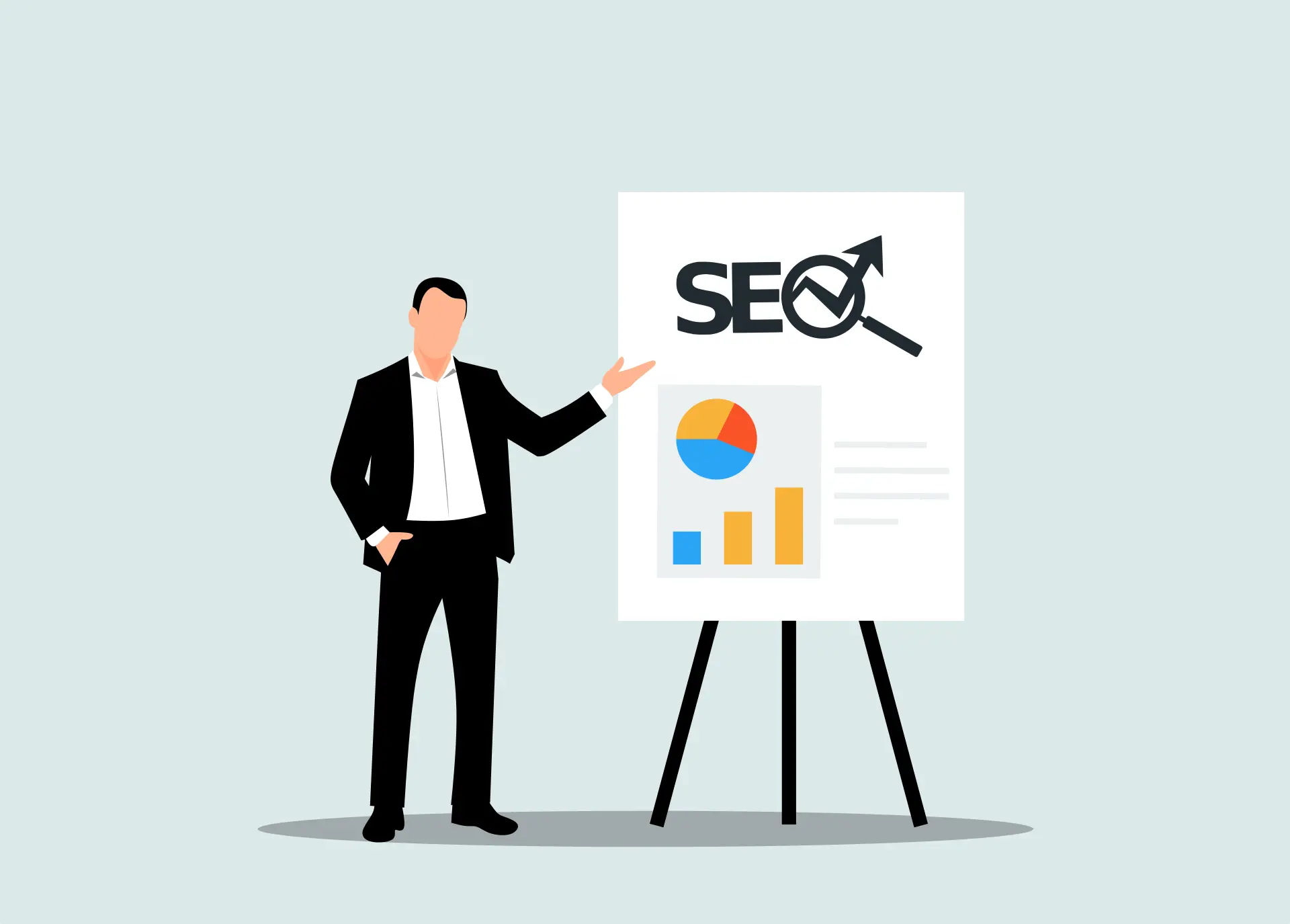Search Engine Optimization – Ultimate Guide to Boost Ranking

In today’s digital age, having a website is crucial for businesses and individuals alike. So in order to reach your target audience, you need to ensure that your website is visible on search engine results pages (SERPs). This is where search engine optimization (SEO) comes into play.
SEO is a set of techniques that are used to increase the quantity and quality of traffic to your website through organic search engine results.
In this article, we’ll explore SEO and provide you with tips to help you optimize your website for search engines.
Introduction to Search Engine Optimization
Search engine optimization (SEO) is a digital marketing strategy used to optimize a website’s visibility and ranking on search engine results pages (SERPs).
By optimizing your website, you can improve its visibility to potential customers, which can lead to increased traffic and higher conversion rates.
SEO includes a range of techniques, including keyword research, on-page optimization, and off-page optimization. The ultimate goal of SEO is to rank your website higher in the organic search results for your target keywords.
Importance of Search Engine Optimization
Businesses need a strong online presence to succeed in today’s digital environment. SEO can help businesses of all sizes by increasing their visibility on search engine results pages. By improving your website’s ranking, you can attract more potential customers and increase your revenue.
SEO can also help businesses establish credibility and authority in their industry. When your website appears at the top of search results, potential customers are more likely to trust your brand.
Understanding Search Engines
To understand how to optimize your website for search engines, it’s important to understand how search engines work.
Search engines use complex algorithms to crawl and index websites, which helps them deliver relevant search results to users.
Search engines use bots, also known as spiders, to crawl websites and gather information about their content.
The information gathered by these bots and then this information is used to create an index of the website, which leads to delivering search results.
Keyword Research
Keyword research is an essential part of SEO that involves researching the keywords and phrases that potential customers use to search for products or services. By targeting these keywords, you can optimize the website’s content to appear higher on search engine results pages.
Mainly two factors should be considered while conducting keyword research:
You should target keywords with high search volume and low competition to increase your chances of ranking higher in search results.
On-page SEO
On-page optimization techniques are used to optimize individual pages on your website. This includes optimizing page titles, meta descriptions, header tags, URL structure, internal linking, and image optimization.
Title Tags
The most important SEO elements are title tags which are displayed in the search results and give users an idea of what the page is all about.
The title tag should be descriptive, concise, and contain the target keywords.
Meta Description
A meta description is a short description that appears below the title tag in search results. It should be compelling, informative, and contain the target keyword. The meta description should also be unique for each page on your website.
Header Tags
Header tags, also known as H1, H2, and H3 tags, are used to structure the content on your website. H1 tags should be used for the main page title, while H2 and H3 tags should be used for subheadings and supporting content.
URL Structure
URL Element is another important on-page SEO element. URLs should be short, descriptive, and contain the target keyword. They should also be easy to read and understand.
Internal Linking
Internal linking pertains to the hyperlinks present on your website which direct to other pages within the same website. By incorporating internal linking, search engines can better understand the layout of your website and the significance of each page.
Image Optimization
Image optimization involves optimizing the images on your website to make them more search-engine friendly. This includes using descriptive file names and alt tags, as well as compressing the images to reduce their file size.
Off-page SEO
Off-page optimization refers to the techniques used to improve your website’s visibility and ranking outside of your website. This includes link-building and social media marketing.
Link Building
Link building involves getting links from other websites to your website. The quality and quantity of these links can impact your website’s ranking on search engine results pages.
Social Media Marketing
Social media marketing involves the promotion of your website on social media platforms such as Facebook, Instagram, LinkedIn, and Twitter which impact your website’s ranking on search engine results pages.
Mobile SEO
It is important to ensure that your website is optimized for mobile because people nowadays access the internet on their mobile devices more frequently than laptops or PC.
This includes using responsive design, optimizing images, and ensuring fast page load times.
Local SEO
Local SEO involves optimizing your website for local search results. This includes creating a Google My Business listing, optimizing your website for local keywords, and acquiring local backlinks.
Measuring Your SEO Success
Measuring your SEO success is essential to determine the effectiveness of your SEO strategy. This includes tracking your website’s traffic, ranking, and conversion rates.
Common SEO Mistakes to Avoid
There are several common SEO mistakes that can harm your website’s ranking on search engine results pages (SERPs). These include keyword stuffing, duplicate content, and using black hat SEO techniques.
Future of SEO
The future of SEO is constantly evolving. With the rise of voice search and artificial intelligence, it’s important to stay up-to-date with the latest trends and techniques in SEO./
FAQs
SEO is an important element for website ranking because it can help businesses increase their visibility on search engine results pages, which leads to attracting more potential customers and increasing revenue.
Yes, of course, It is possible to do SEO yourself. However, it requires time and effort to learn and implement SEO techniques effectively.
Conclusion
SEO is an essential digital marketing strategy that can help businesses increase their visibility and ranking on search engine results pages. By understanding the key elements of SEO and implementing best practices, businesses can attract more potential customers and increase their revenue.






One Comment